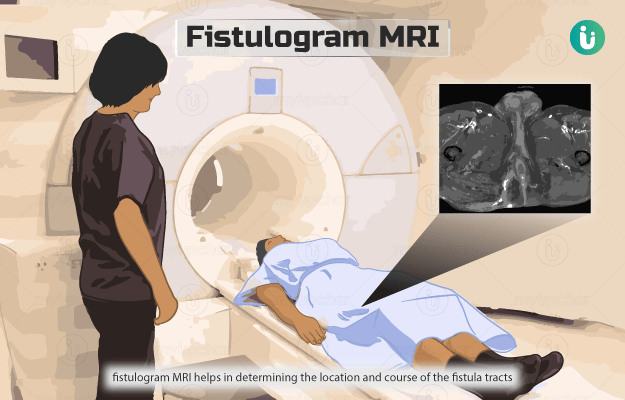What is an MRI fistulogram?
Magnetic resonance imaging (MRI) scan fistulogram is an imaging technique performed before surgery in people with conditions such as anal, anovaginal or rectovaginal fistulas.
An anal fistula is a relatively uncommon condition in which a small tunnel develops from the inside of the anus to the skin near it. It usually develops from an infection in the glands just inside the anus that forms a collection of pus (abscess). When the pus makes its way from the infected gland to the skin and drains out, it leaves a tunnel behind. The anal fistula does not go away on its own and needs surgery in most cases.
Anovaginal and rectovaginal fistulas are tracts formed between the anus or rectum and the vagina. It occurs due to radiation therapy, inflammatory bowel disease or surgical trauma.
An MRI scan gives detailed images of the internal structures of the body using a strong magnetic field and radio waves.
An MRI fistulogram helps in determining the location and course of the fistula tracts. It also helps in detecting the presence of any abscesses that may have formed and in assessing the site of the internal and external openings of the fistula before surgery.











































